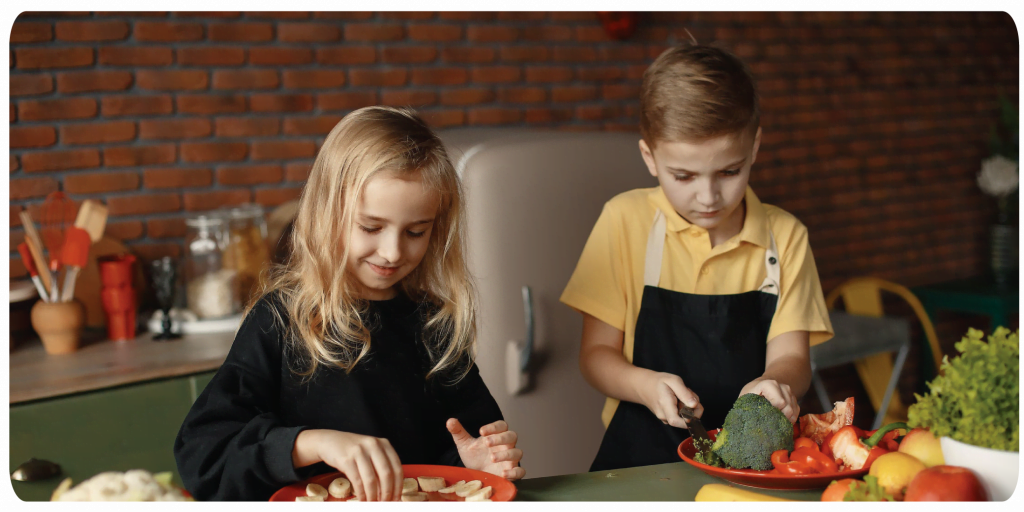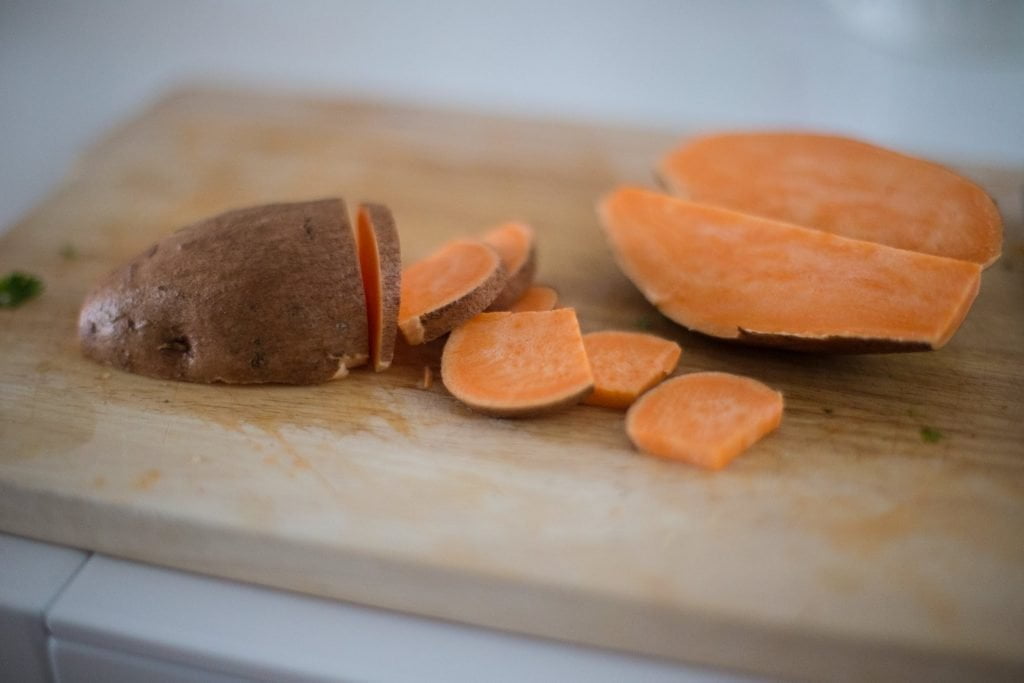Boost Your Child’s Immunity With Food!

As parents, we follow our kids around with wipes to banish germs and bacteria from their hands and faces before they have a chance to get into their bodies. We vaccinate to protect them against preventable, life-changing illnesses. We also work to make sure their water is clean and their air is pure, giving them the best chance to grow up healthy and strong. But did you know that you can also help strengthen your child’s immune system with what you put on their plates?
Pediatrician Dr. Hassan Alzein and Nutritionist/Dietitian Anna Velazquez, both of Alzein Pediatrics in Evergreen Park and Oak Lawn, explain how food choices can make a big difference in your child’s ability to fight illnesses such as the flu, colds, and more.
“There are healthy habits you can adopt that will give your child’s immune system a boost,” says Dr. Alzein, “and good nutrition is near the very top on that list.”
Antioxidant-Rich Berries
Where to start? Anna recommends beginning with berries! “Berries are full of antioxidants, which help your body fight oxidative stress caused by free radicals which helps keep our immune system fighting.”
Include many different berries in your child’s diet: strawberries, blueberries, raspberries, cranberries, and blackberries, just to name a few. Anna says don’t worry about finding fresh all year round. Frozen berries are just as nutritious and delicious because they are frozen at the peak of ripeness.
Dr. Alzein says, “Try mixing berries into cereal, smoothies, or as a topping for yogurt. Berries by themselves also make a great snack in between meals. For a light dessert, add a mound of berries to cream.”
Nutritional Green Veggies
Next, Anna says, “It’s no secret that broccoli is a nutritional powerhouse. It packs a solid punch, with a number of immune system and inflammatory response boosters, including vitamins C, A, E, and K as well as several antioxidants. “Broccoli is best when eaten raw, but if your little one won’t eat it alone, try serving it with their favorite dip. You can also add it to pasta, eggs, stir fry, soups, and stews.”
Spinach is also an important choice, full of many of the vitamins and minerals that boost your child’s immune system. “Spinach has vitamin A, E, C, and K, folate, manganese, zinc, selenium, and iron,” says Dr. Alzein. “All of these nutrients work in different ways to enhance immune system function. Spinach is a big bang for its buck.”
Offer spinach to your child in a variety of ways – sautéed, baked, steamed, wilted with garlic and onions, even in smoothies. Let them choose their favorite. You can also make spinach pesto to top pasta or combine raw spinach with strawberries and pecans for sweet salad.
Immune Boosting Sweet Potatoes

Speaking of sweet, sweet potatoes are high in beta-carotene. Studies show that this antioxidant can increase the number of disease-fighting cells that can destroy infected or cancerous cells. Sweet potatoes are also a great source of vitamin C, which is another immune system enhancer.
Anna says, “Try a sweet potato bar where your kids can add their own toppings or try mixing mashed sweet potato into muffins and pancakes. You can also slice them into fries or make a yummy sweet potato and cheese quesadilla.”
Gut Health for Overall Health
Increasing good bacteria in your child’s stomach is as easy as reaching for a container of yogurt. “There are probiotics in yogurt that strengthens the intestinal tract to prevent gastrointestinal illnesses,” says Dr. Alzein. “This is important because about 70% of our immune system is in our gastrointestinal tract.”
“Probiotics, when eaten with prebiotics like bananas, apples, oats, wheat bran, flax seeds, and other fibers, keep our children’s tummies healthy. They fight and stop the migration of bad bacteria in the stomach and are a great immune booster.” To reap the benefits of yogurt, parents should opt for serving low-sugar varieties.
Try mixing plain yogurt with a small amount of honey and vanilla extract. This alternative has a lower sugar content than the vanilla yogurt you buy in stores. Yogurt parfaits layered with fruit and granola are always a hit with kids. Instead of serving ice cream, prepare a frozen treat by adding vanilla and strawberries to plain Greek yogurt.
Fiber also activates those white “killer” blood cells – and oats are an important source of fiber. “Oats are easy to incorporate in your kid’s diets,” says Anna. “Serve oatmeal for breakfast – getting creative with overnight oats or just providing oatmeal breakfast bars. If your child is not a fan of oatmeal, offer oatmeal pancakes with ripe bananas and oats instead of flour.”
Healthy Fats for Immunity
Seeds are an often-overlooked but tasty and valuable part of an immune-boosting diet. “By eating a variety of seeds, such as pumpkin, sunflower, and flax seeds, your child will be getting vitamin E, zinc, and omega 3 fatty acids, all of which help build a strong immune system,” says Dr. Alzein.
Trail mix is always a great snack that includes seeds. Sprinkle seeds on salads, use ground flaxseeds in smoothies, or make homemade granola.
Proteins are also important to your child’s immune system. Anna recommends salmon, which is rich in Omega-3 fatty acids. She says, “Not only are these fats essential for developing brains, but they also reduce inflammation, which increases airflow in the lungs, protecting your child from colds and respiratory infections.” Research has also shown these fatty acids may boost immune systems by enhancing the function of immune cells.
Kids do actually enjoy eating fish, and salmon is a particularly great choice. Salmon has a mild flavor that goes perfectly with sweet sauces like Teriyaki, Hoisin, and soy sauce with a splash of honey. Salmon can also be made into cakes or nuggets that incorporate chopped vegetables.
Other Helpful Health Hints
Dr. Alzein points out that research shows when a child is low in vitamin D, they are more susceptible to illness. “Eggs and mushrooms are one of the few foods with naturally occurring vitamin D,” he says. Eggs also include a number of other immune-boosting nutrients, such as B vitamins and selenium.
“A bonus is that they’re a budget-friendly source of protein and they cook up so quickly to make convenient last-minute meals.” Try making egg cups with veggies, a great make-ahead breakfast. Hard-boiled eggs also make an easy and quick lunch or snack for kids.
Anna loves almonds because they’re loaded with vitamin E and manganese, a strong immune-boosting duo that enhances natural killer cell activity. “Almonds are very tasty and are a fun snack to munch on. They are available salted, blanched, un-shelled, or shelled. They can also be added to different foods like salads, smoothies, or oatmeal,” she says. Almond flour instead of white flour can be a much healthier choice for baked goods.
Fresh and Natural Foods for Optimal Immunity

One thing that all these foods have in common? They are whole, fresh, and natural with almost no processing. Anna says, “When children eat heavily processed foods, their body’s ability to produce and repair immune cells and antibodies is damaged. They don’t get the nutrients they need to create healthy gut bacteria, which is shown to boost immunity.”
Dr. Alzein knows that parents want to keep their children healthy today – and set them up for a lifetime of health as much as possible. He says, “Providing your child with a diet rich in immune-boosting foods will help their own bodies fight illness and infection, even with you can’t be there with a wipe.”





